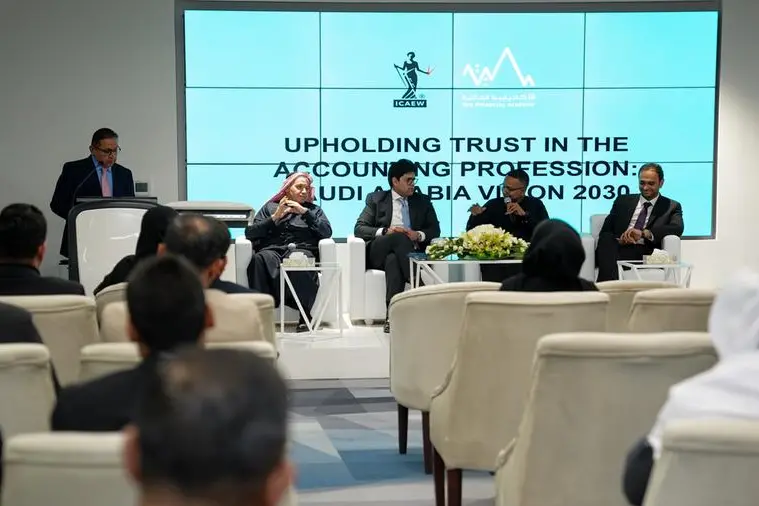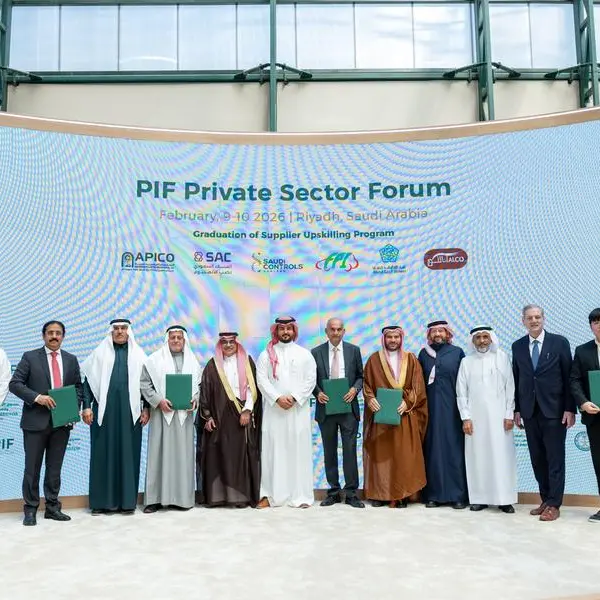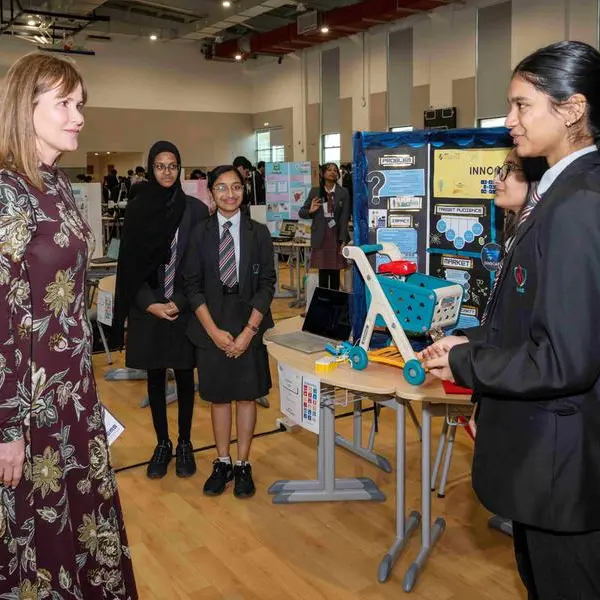PHOTO
Riyadh, Saudi Arabia: Finance leaders in Saudi Arabia have called for enhanced reforms in the accounting profession to strengthen audit oversight, ethical leadership, and workforce development. Speaking at an ICAEW-hosted panel at The Financial Academy in Riyadh last week, regulators, industry experts, and academics discussed the evolving role of the accountancy profession in maintaining investor trust and financial transparency - key pillars of Vision 2030.
With investor confidence and financial transparency critical to Saudi Arabia’s diversification goals, the discussion focused on how stronger accounting standards, ethical frameworks, and technological adaptation can ensure the profession keeps pace with the Kingdom’s rapid evolution.
Hanadi Khalife, Head of ICAEW Middle East, said: “Saudi Arabia’s transition to a knowledge-based economy depends on trust in financial reporting. Ethical, transparent accounting practices are essential for attracting investment and ensuring long-term economic resilience. ICAEW remains committed to equipping accountants in the Kingdom with the skills and governance structures needed to support Vision 2030’s ambitions."
Strengthening Oversight and Auditor-Investor Trust
As Saudi Arabia’s regulatory landscape evolves, audit oversight remains a priority for upholding market integrity. Sami Mohammed AlShorafa, Supervision Deputy at the Capital Market Authority, highlighted the need for better alignment between auditors and investors.
AlShorafa pointed to the CMA's oversight reforms, launched in 2016, which have driven notable improvements in audit regulation. There are now 16 registered audit firms with 50 registered audit partners under CMA supervision, reinforcing scrutiny over audit quality, fees and compliance. He also observed that firms with strong technical teams consistently deliver superior audit quality, citing the value of technical partner reviews in upholding rigorous financial scrutiny.
Raising Ethical Standards Beyond Compliance
The panel agreed that accounting firms must move beyond regulatory compliance and actively embed ethical leadership into corporate culture. Mohammad Taha, Partner at KPMG Professional Services Company, emphasised the disconnect between ethical policies and their real-world application: “Ethical leadership starts with individuals demonstrating ethical behaviour and the ability to call out unethical practices. Leaders must establish an appropriate culture within firms that prioritises public interest and investor needs,” he said.
Professor Mohammad Nurunnabi, Founding Director of Center for Sustainability and Climate at Prince Sultan University, Saudi Arabia, who led his institution in becoming the first carbon-neutral certified university in the MENA region, highlighted the lack of transparency in corporate ethical governance: “Our research revealed very few companies explicitly communicate ethics on their websites in the MENA region. Organisations should make ethical values visible in their operations rather than treating them as implicit assumptions. The ESG guidelines are available for the GCC and also Saudi Arabia but for the ISSB standards implementation need more time as more maturity in market on sustainability is required”
Preparing the Workforce for Technological Transformation
As technology reshapes the financial landscape, the accounting profession must evolve to keep pace with artificial intelligence, sustainability standards, and financial technology. Faheem Ejaz, Senior Director at Deloitte, warned that accounting education must modernise to meet future demands: “To address skill shortages and meet 2030 commitments, we must update curricula, collaborate with industry partners, and focus on continuous professional development, particularly in technology, sustainability, and emerging sectors,” he said.
The discussion also touched on the growing expectations of younger professionals, who seek greater flexibility in their careers while maintaining professional rigour. Adnan Zakariya, Managing Director at Protiviti Middle East and panel moderator highlighted the need for collaboration among regulators, industry and academia: “Building trust in the accounting profession requires a multifaceted approach involving regulation, education, ethical leadership, and technological adaptation. The key factor linking these elements is partnership among all stakeholders to advance Saudi Arabia's economic goals,” he said.
To ensure the accounting profession remains a pillar of economic confidence, the panel emphasised the importance of enhancing audit quality, modernising accounting education, and integrating ethical governance into business strategy. By taking these steps, Saudi Arabia can boost investor confidence, attract global investment, and position its financial sector as a model of integrity and innovation.
Media enquiries:
Layth Kamal, Mojo PR, on email icaew@mojo-me.com
About ICAEW
Chartered accountants are talented, ethical and committed professionals. ICAEW represents more than 208,000 members and students around the world.
Founded in 1880, ICAEW has a long history of serving the public interest and we continue to work with governments, regulators and business leaders globally. And, as a world-leading improvement regulator, we supervise and monitor over 12,000 firms, holding them, and all ICAEW members and students, to the highest standards of professional competency and conduct.
We promote inclusivity, diversity and fairness and we give talented professionals the skills and values they need to build resilient businesses, economies and societies, while ensuring our planet's resources are managed sustainably.
ICAEW is the first major professional body to be carbon neutral, demonstrating our commitment to tackle climate change and supporting UN Sustainable Development Goal 13.
ICAEW is a founding member of Chartered Accountants Worldwide (CAW), a global family that connects over 1.8m chartered accountants and students in more than 190 countries. Together, we support, develop and promote the role of chartered accountants as trusted business leaders, difference makers and advisers.
We believe that chartered accountancy can be a force for positive change. By sharing our insight, expertise and understanding we can help to create sustainable economies and a better future for all.




















